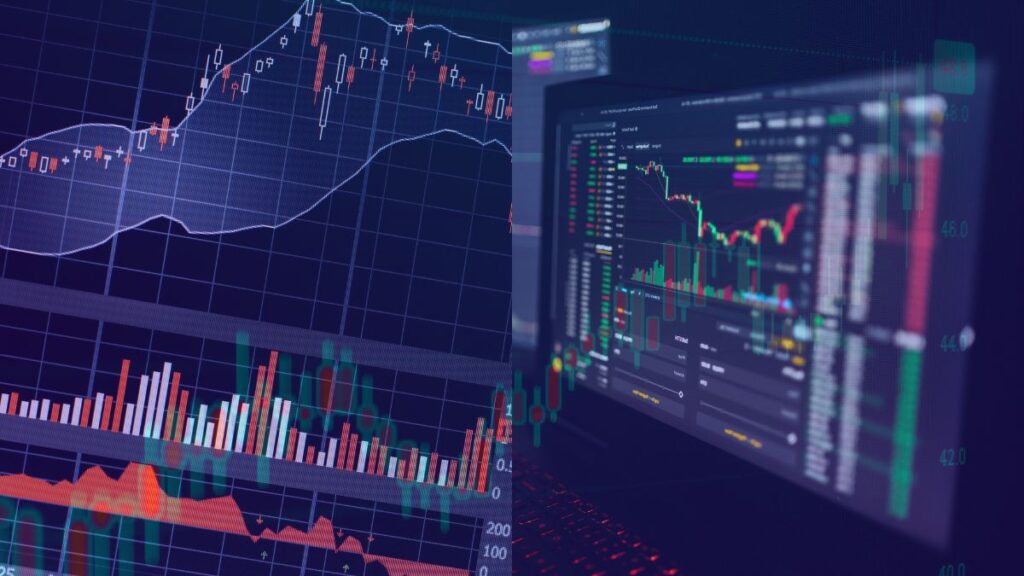Introduction
Forex trading has become one of the popular ways to make money in the global market. However, for many, the biggest challenge is getting started with limited capital. In a world where large investments are often considered the key to success, how can one participate in forex trading with minimal funds?
In this article, we’ll take a closer look at how to trade forex with small capital. We’ll explore important strategies, choosing the right broker, and ways to manage risk to maximize your profit potential. Not only that, we will also present inspiring stories of traders who have succeeded in forex despite their limited capital.
Trading forex with small capital is not impossible. With the right approach and adequate knowledge, you can start your trading journey and grow that capital into significant profits. Let’s start this journey together, exploring the dynamic and opportunity-filled world of forex trading.
Understanding Forex
Forex trading, or foreign currency trading, is an exciting but complex activity. It’s not just about buying and selling currencies, but rather understanding the fluctuating dynamics of the market. For beginner traders with little capital, it’s important to start by understanding small capital forex trading tips and also the aspects of forex.
One of the key aspects of forex trading is ‘currency pairs’. These currency pairs, such as EUR/USD or GBP/JPY, are the core of forex trading. Each currency pair reflects the value of one currency against another. As a trader, your job is to predict the direction in which these exchange rates will move to make a profit.
In addition, the concept of leverage is an important tool to understand. Leverage allows traders to control positions that are larger than the capital they have. While this can increase potential profits, it also increases the risk of loss, so it is important to use it with caution, especially when your capital is limited.
Finally, risk management should not be overlooked. In forex trading, there is always the possibility of loss, and effective risk management is key to ensuring that these losses don’t deplete your capital. This includes setting ‘stop-losses’ to limit potential losses on each trade and not investing too much of your capital in a single trade.
Choosing the Right Broker
Starting forex trading with a small capital requires a wise choice of broker. The broker is your intermediary in the forex market and plays a vital role in your trading. Here are some small-cap forex trading tips to consider when choosing a broker:
- Commissions and Spreads: Look for a broker that offers low spreads and minimal commissions. This is important as high transaction costs can erode profits, especially when trading with small capital.
Leverage Offered: While leverage can increase potential profits, it also increases risk. Choose a broker that offers leverage options that suit your risk management strategy.
Trading Platform: Ensure that the broker provides a trading platform that is easy to use, stable, and equipped with useful analytical tools. A good platform helps make informed trading decisions.
Regulation and Security: Choose a broker that is regulated by a trusted financial institution. This ensures the safety of your funds and the transparency of the broker’s operations.
Support and Educational Resources: A good broker offers good customer support and educational resources, such as webinars, tutorials, and market analysis, which are very useful for beginner traders.
Choosing the right broker is a crucial step in forex trading. A reliable broker not only eases the trading process but also helps in safeguarding your capital.
Tips for Trading Forex with a Small Capital
Having a small capital does not mean you cannot be successful in the forex market. With the right strategy, you can maximize your profit potential. Here are some strategies that can be applied:
Scalping
Scalping is a strategy that capitalizes on short-term market volatility. It involves entering and exiting the market quickly to profit from small price changes. Scalping is suitable for traders with small capital as each trade requires a relatively small investment. However, this strategy requires significant time dedication and quick access to market information to make accurate trading decisions. Scalping also requires low transaction costs and small spreads, as these costs can quickly reduce profits from frequent trading.
Day Trading
Day trading focuses on opening and closing positions within a single trading day to avoid the risks associated with holding positions overnight. This strategy requires traders to actively analyze and respond to market movements throughout the day. The advantages of day trading include the reduction of risks associated with unexpected market movements when the market is closed. However, it also means that traders need to be highly disciplined in managing trades and should be prepared to spend a lot of time monitoring the markets.
Use of Stop Loss
The use of stop-losses is a critical aspect of risk management, especially for traders with small capital. Stop-losses help limit losses to an acceptable level if the market moves against a position. Setting stop-losses appropriately requires an understanding of market volatility and personal risk tolerance. While important to protect capital, stop-losses that are too tight can lead to positions being closed early, while stop-losses that are too loose can increase the risk of large losses.
Diversification
Diversification in forex trading involves spreading capital across different instruments or currency pairs to reduce risk. For traders with small capital, diversification should be done carefully to ensure that each trading position is still manageable and does not exceed the risk limit. Diversification helps reduce the negative impact of unfavorable market movements on a single instrument or currency pair.
Technical and Fundamental Analysis
Technical and fundamental analysis are key to making informed trading decisions. Technical analysis involves the study of price charts and technical indicators to identify market patterns and trends. Fundamental analysis, meanwhile, looks at economic and political factors that can affect the value of a currency. The combination of these two types of analysis helps traders identify potential trading opportunities and make more informed decisions.
Capital Management
Strict capital management is important for traders with small capital. This involves setting a trade size that suits the available capital and avoiding excessive risk. Traders should set rules on what percentage of total capital can be used for each trade and ensure not to exceed this limit. This approach helps maintain trading sustainability and avoid large losses that could wipe out capital.
Use of Tools and Resources for Forex Trading with Small Capital
The next small capital forex trading tip is that utilizing the right tools and resources can be a determining factor for success. Here is an explanation of how these tools and resources can help you:
Quality Trading Platform
Choosing the right trading platform is very important. It should be intuitive, easy to use, and provide effective technical analysis tools. Features such as real-time charts, technical indicators, and fundamental analysis tools can help you make more informed trading decisions.
Market Analysis Apps
Applications such as MetaTrader 4 or 5, TradingView, and others give traders access to detailed technical and fundamental analysis. Using these apps, traders can monitor market trends, study chart patterns, and gain valuable insights into market movements.
Economic Calendar
Keeping up with important economic events is crucial in forex trading. Economic calendars provide a schedule of economic data releases that can affect the market. By understanding the impact of these economic events, you can plan your trading strategy to take advantage of expected market changes.
Trading Forums and Communities
Joining a forum or trading community can provide insights and advice from other traders. Platforms like Forex Factory and BabyPips offer discussion forums where traders can share strategies, advice, and experiences.
Educational Resources
Many brokers and independent websites offer educational materials such as webinars, video tutorials, and articles. These resources are invaluable for beginner traders and those looking to deepen their knowledge of the forex market.
Demo Account
Before jumping into trading with real funds, it is highly recommended to practice with a demo account. A demo account allows you to practice trading without the risk of losing money. It’s a great way to test strategies, understand the trading platform, and gain confidence before trading with real capital.
Risk Management Tools
The use of tools such as stop-loss orders and take-profit orders can help in managing risk. By setting these orders, you can limit potential losses or lock in profits without having to constantly monitor the market.
Utilizing these tools and resources effectively can provide significant advantages, especially for traders with limited capital. With access to the right information and the use of the right tools, you can increase your chances of success in forex trading.
Conclusion
Wrapping up the discussion on small capital forex trading tips, we realize that success in this arena is not the result of chance, but rather of a series of well-considered steps.
The key ones are having an in-depth understanding of forex fundamentals, choosing a broker that offers favorable trading conditions for small capitals, and adopting a trading strategy that suits your capital size and risk profile. Effective risk management, including the use of stop-losses and take-profits, is important to safeguard your capital from unexpected losses.
In addition, utilizing resources such as reliable trading platforms, educational resources, and demo accounts, can improve your skills and confidence in trading. Finally, success in forex trading also comes from the desire to continuously learn and adapt to the ever-changing market dynamics.
By applying these principles, small-cap traders can increase their chances of success in the competitive and challenging world of forex.






